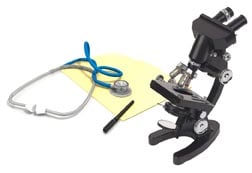Tourette Syndrome Research

The CDC works with partners to conduct research to better understand Tourette Syndrome (TS), including the prevalence of TS, the quality of life among people affected by TS, and the impact of TS on parenting, relationships, and education. CDC is also conducting studies of screening and diagnostic tools to improve identification of children with tics. Results from this research are used to better inform public health efforts to improve the lives and health outcomes of people affected by TS, to implement education programs to help improve the quality of life of those with TS and their families, and to inform future research.
CDC conducts research to:
- Find out how many people have TS and the characteristics of people with TS.
- Determine the impact of TS on individuals; families; and communities, including schools.
- Improve the identification of tics and tic disorders, including TS.
Prevalence and Characteristics of TS
It is important to know how many people have TS (prevalence). By studying the number of people diagnosed with TS and other tic disorders over time, we can determine whether the number is rising, dropping, or staying the same. We also can compare the number of people with TS across different areas of the country and among different groups of people.
Understanding the characteristics of people with TS helps researchers at CDC to better identify groups of people who might be at greater risk for TS, as well as groups who might be less likely to be diagnosed with TS. This information helps researchers at CDC focus future research and outreach activities and communities plan for services.
Following are activities that CDC conducts or funds in order to learn more about the number of people with TS:

National Survey of Children’s Health
CDC supports a nationally representative survey that provides data on health conditions among children in the United States, called the National Survey of Children’s Health.
In the survey, parents are asked if their child had ever been diagnosed with TS, whether or not their child currently had TS, and about the severity of TS. These data can be used to calculate nationally representative prevalence estimates of diagnosed TS, as well as information about the prevalence of co-occurring conditions and characteristics of children who had been diagnosed with TS.
Learn about findings from the National Survey of Children’s Health and other data sources »
Overview of Other Research Activities
CDC:
- Is funding the evaluation of screening for tics in pediatric clinics to improve early identification of tics, tic disorders, and symptoms of co-occurring disorders.
- Is funding data collection to assess healthcare providers’ attitudes, knowledge, and experience related to identifying and treating tic disorders including Tourette syndrome among children.
- Is analyzing healthcare claims data to estimate expenditures associated with tic disorders.
- Supported research to better understand symptom onset, diagnostic process and timing, treatment, and impact of TS using data from the National Survey of the Diagnosis and Treatment of ADHD and Tourette Syndrome (NS-DATA), a follow-up survey of families who participated in the 2011-2012 National Survey of Children’s Health.
- Funded four sites as part of the Project to Learn about Youth – Mental Health, a community study looking at how frequently certain mental, behavioral, and tic disorders occur in school-aged children and how those disorders are treated.
- Funded the development of screening tools and brief diagnostic tools to improve the early identification of children with tics.
- Funded an update of the Diagnostic Interview Schedule for Children to use as an accurate diagnostic interview for mental, emotional, and behavioral disorders including TS.
- Conducted a study to learn more about tic disorders and their impact on families and communities in collaboration with the University of Rochester and the University of South Florida.
Bridging the Gap between Public Health and Tourette Syndrome
The National Center on Birth Defects and Developmental Disabilities is working to improve the systematic understanding of TS, and the health and well-being of people affected by TS. The approach is based on a summary report on TS that was informed by a literature review and expert panel and highlighted gaps in knowledge and resources that can be addressed by public health.
Read an archived summary of the report»
For More Information
For information on clinical trials and TS
Tourette Association of America supported research
All Articles
Search a database of articles that have been published by CDC authors within the National Center on Birth Defects and Developmental Disabilities from 1990 to present.